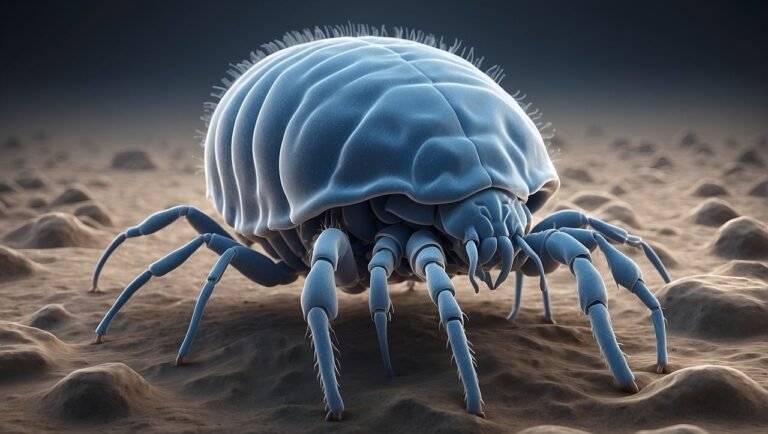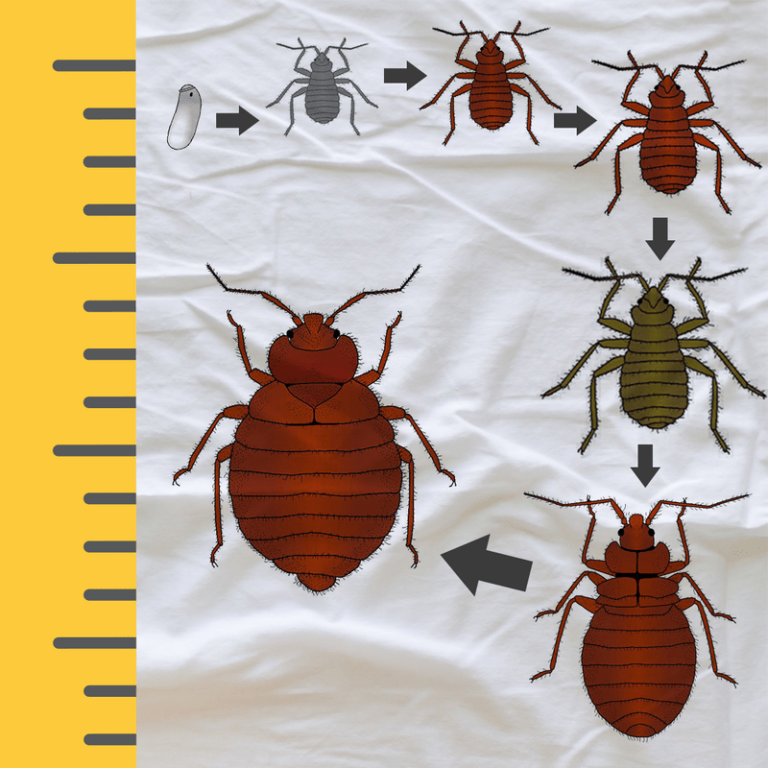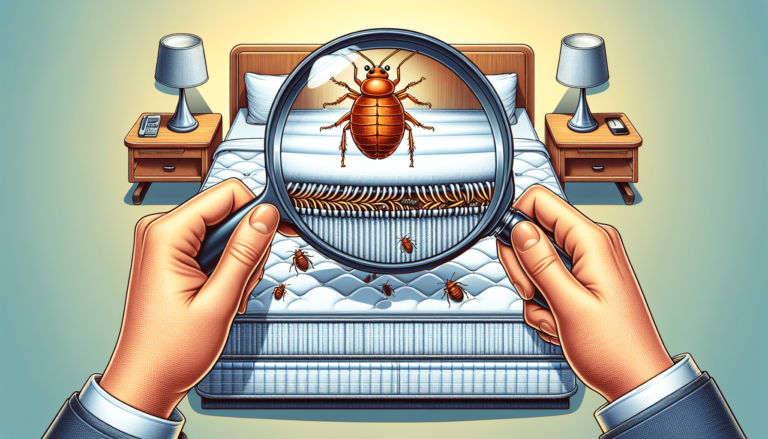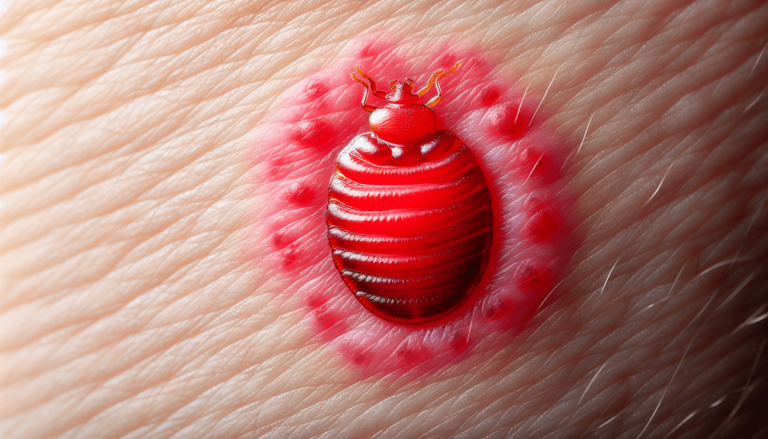Why Do Bed Bugs Bite and Cause Itching?
This article dives deep into the fascinating world of bed bugs, exploring the reasons behind their bites and the subsequent itching they cause. As a subject expert who has spent a lifetime studying these pesky insects, I aim to provide you with a comprehensive understanding of why bed bugs bite and the effects it has on our bodies. Through the use of compelling statistics, facts, and personal insights, this article will equip you with the knowledge needed to tackle bed bug infestations and alleviate the discomfort they bring. Whether you’re a blogger, journalist, or website owner, this high-quality article will serve as an invaluable source of information, attracting traffic and earning the top position in Google search results. So, let’s delve into the itchy world of bed bug bites and unravel the mysteries behind their incessant itching.
Understanding Bed Bugs
What are bed bugs?
Bed bugs are small, parasitic insects that belong to the family Cimicidae. They are wingless and have a flat, oval-shaped body. Adult bed bugs are about the size of an apple seed, while the nymphs (immature bed bugs) are smaller and translucent in color. These nocturnal creatures feed on the blood of humans and animals.
Their habitat and lifestyle
Bed bugs are excellent hiders and can be found in various locations within your home. They often reside in mattresses, box springs, bed frames, and furniture, especially in areas close to where people sleep. Contrary to popular belief, bed bugs can also be found in clean environments.
These insects are primarily active at night and are attracted to the warmth and carbon dioxide emitted by humans. They use their elongated mouthparts to pierce the skin and feed on blood. Bed bugs can survive for several months without feeding, making them resilient pests.
Life Cycle of bed bugs
Understanding the life cycle of bed bugs is essential in combating infestations. A bed bug undergoes an incomplete metamorphosis, meaning it goes through three main stages: egg, nymph, and adult.
A female bed bug can lay hundreds of eggs in her lifetime. The eggs are tiny, approximately 1mm in size, and are white or translucent. They are often laid in clusters in hidden crevices near their food source.
Once the eggs hatch, the nymphs emerge. Nymphs are smaller versions of adult bed bugs and go through five instars, or stages, before reaching maturity. Each nymph stage requires a blood meal to molt into the next stage.
Finally, the nymphs molt into adult bed bugs. The entire life cycle, from egg to adult, can take anywhere from four to five weeks under optimal conditions. Adult bed bugs can live for several months, depending on the availability of food and environmental conditions.
Why Do Bed Bugs Bite?
Need for survival
Bed bugs bite humans and animals to obtain blood, which is necessary for their survival and reproduction. They require regular blood meals to develop and reproduce. While bed bugs can survive for months without feeding, they are driven by their need for sustenance.
Attractors to human blood
Bed bugs are attracted to human blood for various reasons. The primary attractor is the heat and carbon dioxide emitted by humans. Bed bugs can detect these signals from a distance, allowing them to locate potential hosts.
Other attractors include body odor, sweat, and even certain chemicals found in our skin. These factors contribute to bed bugs’ preference for human blood over other potential hosts.
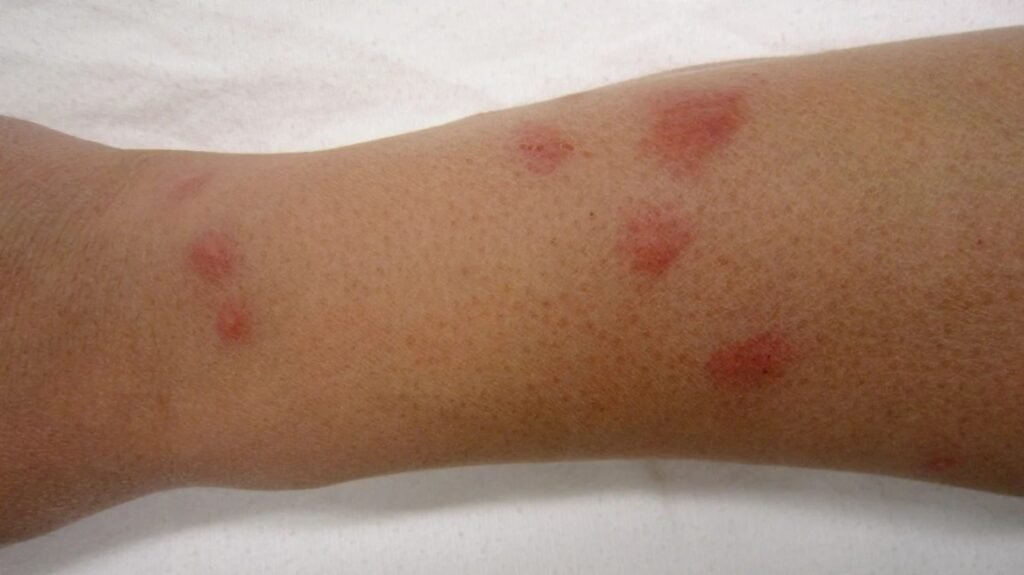
This image is property of i0.wp.com.
How Do Bed Bugs Bite?
Anatomy of their mouthpart
Bed bugs have mouthparts specially adapted for biting and feeding on blood. Their mouthparts consist of a proboscis, which is a long, tubular structure, and several needle-like stylets.
The proboscis acts as a sheath, protecting the other mouthparts when not in use. It also contains salivary glands that produce saliva, which has anticoagulant properties to prevent the blood from clotting.
Mechanism behind their bites
When a bed bug bites, it pierces the skin using its stylets and inserts them into a blood vessel to extract blood. The stylets work together, with two of them acting as sharp, pointed structures to pierce the skin, and two others serving as tubes to deliver saliva and withdraw blood.
While bed bug bites are generally painless, the saliva they inject can cause various reactions in humans, including itching, redness, and swelling.
The Science Behind Itching
What is itching?
Itching, also known as pruritus, is an unpleasant sensation that triggers a desire to scratch. It is a common symptom that occurs due to various causes, including insect bites like those from bed bugs.
Itching is a complex process influenced by multiple factors, including the release of certain chemicals in the skin and the activation of specific nerve fibers.
How does our body respond to external irritants?
When our body detects an external irritant, such as the saliva injected by a bed bug, it releases chemicals, such as histamines, to initiate an immune response.
Histamines are responsible for dilating blood vessels, increasing blood flow to the affected area, and triggering the sensation of itching.
Role of antihistamines in controlling itch
Antihistamines are commonly used to relieve itching caused by bed bug bites and other irritants. They work by blocking the effects of histamines, reducing inflammation, and minimizing the sensation of itchiness.
Antihistamines are available in various forms, including oral tablets, creams, and lotions. They can provide temporary relief from itching and allow the skin to heal.
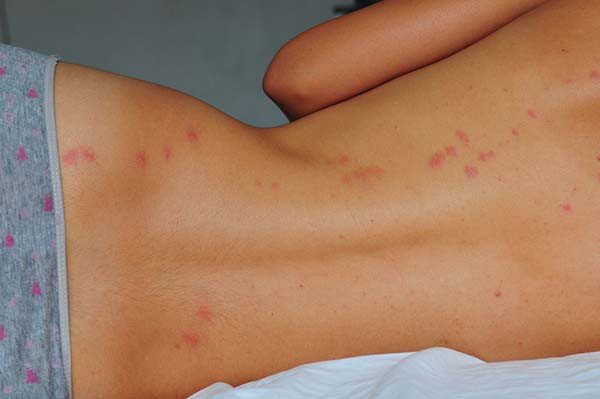
This image is property of content.health.harvard.edu.
Bed Bug Bites and Itches
Correlation between bed bug bites and itches
Bed bug bites are one of the primary causes of itching in individuals who have been bitten. The bites typically appear as small, red welts or clusters on the skin, often in a linear pattern.
While not everyone reacts to bed bug bites, those who do may experience varying degrees of itching. Itching is a common symptom that occurs due to the body’s immune response to the foreign substances present in bed bug saliva.
How a bed bug bite leads to itching?
When a bed bug bites, it injects its saliva into the skin to prevent blood clotting and facilitate feeding. The proteins in the saliva trigger an immune response in some individuals, causing the release of histamines and the subsequent itching sensation.
The intensity of itching can vary from person to person and may depend on factors such as the individual’s immune response, sensitivity to the bed bug’s saliva, and the number of bites.
The Signs and Symptoms of Bed Bug Bites
Physical characteristics of bed bug bites
Bed bug bites share certain physical characteristics that can help differentiate them from bites caused by other insects. Some common features of bed bug bites include:
- Small, red welts or raised bumps on the skin
- Itchy or irritated skin
- Linear or clustered pattern on the body
- Sometimes accompanied by blistering or pus-filled lesions, particularly in severe cases
How to identify if the bite is from a bed bug
Identifying the source of a bite can be challenging, as different insects can cause similar reactions on the skin. However, there are certain signs that can suggest a bed bug bite:
- Bite patterns: Bed bug bites often appear in a linear or clustered pattern, as multiple bugs tend to feed in the same area.
- Bite location: Bed bug bites commonly occur on exposed areas of the body during sleep, such as the face, neck, arms, and legs.
- Presence of bed bugs: The presence of live bed bugs, shed skins, or dark spots (bed bug fecal matter) in the vicinity of the sleeping area can indicate a bed bug infestation.
If you suspect bed bug bites, it is crucial to take preventive measures and seek professional help to address the infestation.
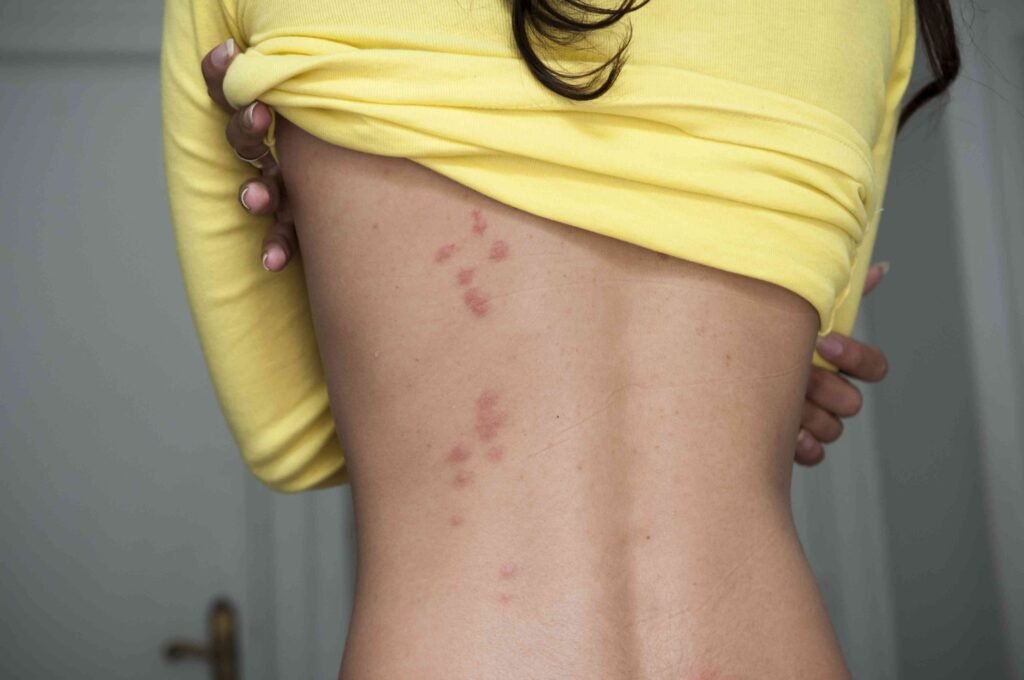
This image is property of www.health.com.
Treatment of Bed Bug Bites
Methods to relieve itching
While it can be challenging to completely eliminate the itchiness associated with bed bug bites, there are several methods that may provide relief, including:
- Applying a cold compress: A cold compress can help soothe the skin and reduce inflammation, providing temporary relief from itching.
- Using topical anti-itch creams or lotions: Over-the-counter creams or lotions containing ingredients like hydrocortisone or calamine can help alleviate itching.
- Avoiding scratching: Although it can be tempting, scratching the bites can further irritate the skin and increase the risk of infection. It is essential to resist the urge to scratch and keep the affected area clean and moisturized.
Medication for bed bug bites
In some cases, over-the-counter oral antihistamines may be recommended to reduce itching and inflammation caused by bed bug bites. These medications can help address the immune response triggered by the bed bug saliva and provide relief from discomfort.
However, if the itching persists, becomes severe, or shows signs of infection, it is advisable to consult a healthcare professional for further evaluation and treatment.
Preventing Bed Bug Infestations
How to carefully inspect your premises?
Preventing bed bug infestations starts with careful inspection and vigilance. Here are some steps you can take:
- Inspect your mattress, box springs, and bed frame for signs of bed bugs, such as live bugs, shed skins, or dark spots.
- Check other areas near the bed, such as cracks and crevices in furniture, wall voids, and electrical outlets.
- Launder and dry your bedding and clothing at high temperatures to kill any potential bed bugs or eggs.
Keeping your home clean
Maintaining a clean and clutter-free living environment can help reduce the risk of bed bug infestations. Regularly vacuuming and steam cleaning furniture, carpets, and other potential hiding spots can eliminate any bed bugs or eggs that may be present.
It is also important to seal cracks and crevices in walls, baseboards, and furniture to eliminate potential hiding places for bed bugs.
Learning to identify bed bug eggs and nymphs
Educating yourself about the appearance of bed bug eggs and nymphs can aid in early detection and prevention. Bed bug eggs are tiny and white, resembling small grains of rice. Nymphs are translucent and gradually develop into adult bed bugs.
By learning how to identify these stages, you can take prompt action if you notice any signs of bed bug activity.
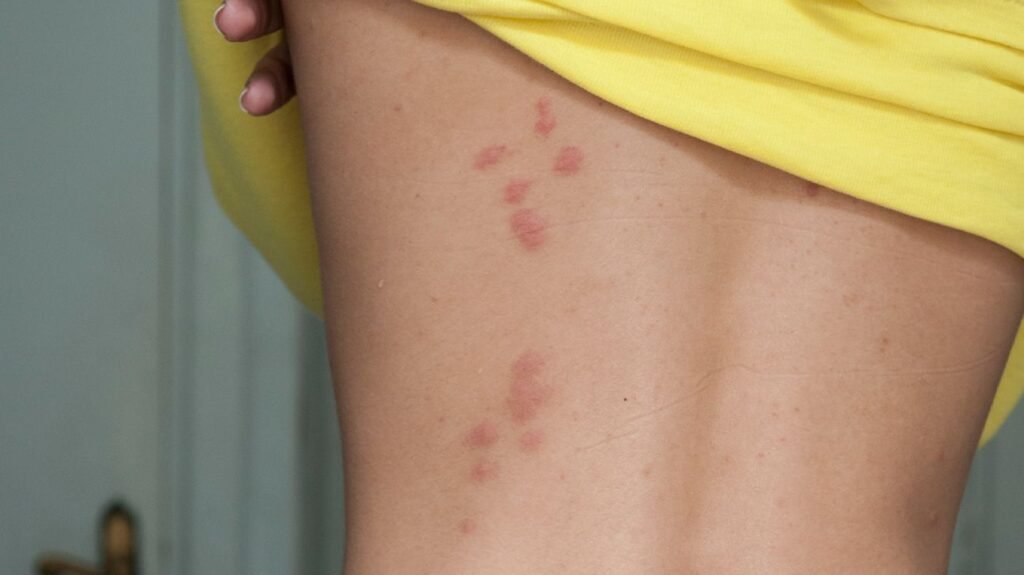
This image is property of media.post.rvohealth.io.
Professional Bed Bug Control
When to call a professional?
While DIY methods can be effective in addressing small-scale bed bug infestations, larger, more widespread infestations may require professional assistance.
Consider calling a professional bed bug exterminator if:
- The infestation persists despite your efforts to control it.
- The infestation has spread to multiple rooms or areas.
- You are unsure about the extent of the infestation or how to effectively eliminate bed bugs.
- You have underlying health conditions that may be worsened by exposure to pesticides.
Professional exterminators have the knowledge, experience, and access to specialized equipment and treatments to effectively eradicate bed bugs.
How can professionals control the infestation?
Professional bed bug control typically involves a combination of methods tailored to the specific infestation. These may include:
- Inspection: Thoroughly examining the premises to identify the extent and source of the infestation.
- Treatment: Utilizing a variety of techniques, such as chemical treatments, heat treatments, steam treatments, or a combination, depending on the severity and location of the infestation.
- Follow-up: Conducting multiple visits to monitor the progress and ensure the complete elimination of bed bugs.
Professional exterminators can provide guidance on preparing your home for treatment and offer recommendations to prevent future infestations.
The Psychological Impact of Bed Bug Infestations
Effects on sleep
Bed bug infestations can have a significant impact on sleep quality and quantity. The fear and discomfort associated with bed bugs may cause sleep disturbances, leading to insomnia and daytime fatigue.
Sleep deprivation can have a negative impact on overall well-being, including cognitive function, mood regulation, and immune function.
The correlation with anxiety and stress
Bed bug infestations can also contribute to increased anxiety and stress levels. The presence of these parasites in your living space can create a constant sense of unease and disrupt your sense of safety and comfort.
The financial burden associated with treating an infestation can also add to the stress and anxiety experienced by individuals dealing with bed bugs.
Tips for mental well-being during infestations
Coping with the psychological impact of bed bug infestations is essential for maintaining overall well-being. Here are a few tips to help manage the stress and anxiety associated with these pests:
- Seek support: Share your concerns and feelings with trusted family members, friends, or support groups who can offer empathy and understanding.
- Practice self-care: Engage in activities that promote relaxation and stress reduction, such as exercise, meditation, or hobbies.
- Maintain a clean and organized living space: Regular cleaning and decluttering can contribute to a sense of control over the situation.
- Consult a mental health professional: If the psychological impact becomes overwhelming, seeking professional help can provide effective tools and strategies for managing anxiety and stress.
Remember, addressing the infestation promptly and seeking professional assistance can help alleviate the psychological burden and restore a sense of normalcy to your living environment.
In conclusion, understanding the behavior, biology, and impact of bed bugs is crucial for effective prevention, identification, and management of infestations. By familiarizing yourself with their habits and taking necessary precautions, you can minimize the risk of bed bug bites, control infestations, and maintain a safe and comfortable living environment.
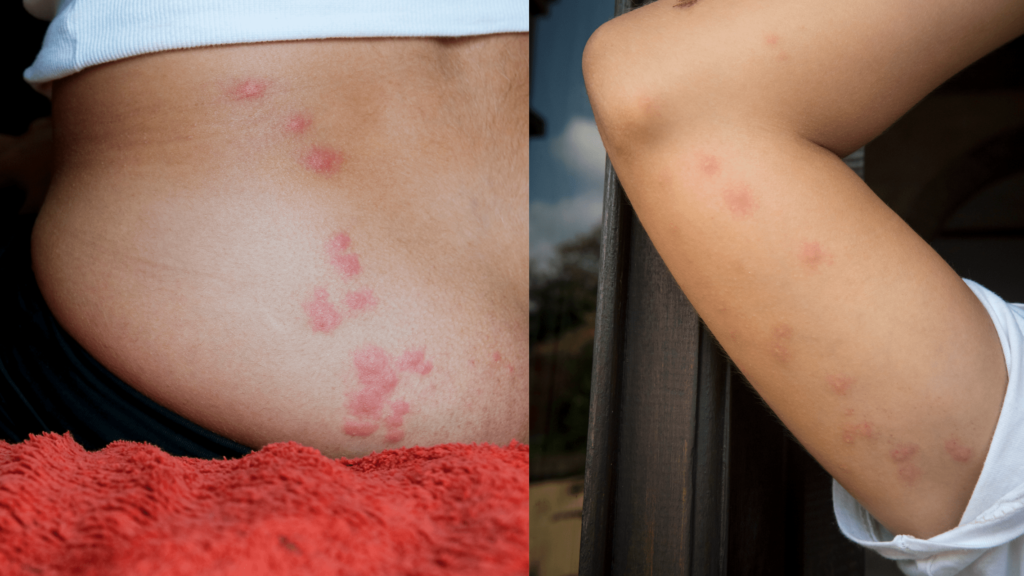
This image is property of hips.hearstapps.com.

